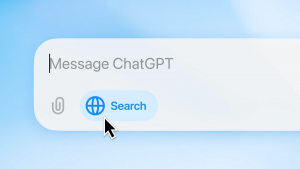Mobile is Key for Music Cloud in 2012
![]() There are only a few days left in 2011, and if by now you still have no clue what the cloud is, then this just might help you catch up before the new year begins.
There are only a few days left in 2011, and if by now you still have no clue what the cloud is, then this just might help you catch up before the new year begins.
First, to answer your question, the cloud is not the fluffy stuff you see when you look in the sky. What we’re talking about here is the virtual cloud, a place where you can securely store your data while also providing access anytime, anywhere. It eliminates the need for thumb drives or external hard drives which can be easily misplaced, destroyed, corrupted or stolen. With the cloud, you can access your data from your home, office, mobile devices and be able to share these data with authorized people as well, making it a nifty innovation for business people who are always on the go.
But these days, business people aren’t the only ones who benefit from using cloud services, as people are now seeing the benefits of using personal clouds since consumers, especially those who are active in social networking sites since they are the ones who generate the greatest amount of data from photos, documents, music and a lot more.
2011 was a significant year for the music cloud, with Spotify’s international launch and iTunes’ new Match service. But what will next year bring? A bit more acceptance, especially on the corporate side. Consumers are a ready and willing audience for music cloud services, and companies will finally rise to the challenge.
“Music and the cloud will start to be synonymous in 2012. You’ll be so accustomed to storing and accessing your music instantly from wherever you are on all kinds of devices, you won’t even think of ‘the cloud’ – it will just be how you get your music,” says Daren Tsui, mSpot’s CEO and Co-Founder.
“All music – everything you own, all the music you rent and all the songs you hear on the radio – will be instantly accessible from the cloud; forever blurring the lines of our existing music mediums and mindsets.”
![]() In 2011, we saw how music cloud and personal cloud services flourished. Lets take a quick recap as to what happened in these areas this year.
In 2011, we saw how music cloud and personal cloud services flourished. Lets take a quick recap as to what happened in these areas this year.
Acquisitions
- Clear Channel Radio, the largest digital and terrestrial radio company in U.S., acquired Thumbplay Inc., cloud-based music services of digital music company
Product Launches
- Sony’s subscription multimedia service Qriocity launched Music Unlimited to Android devices for $3.99/£3.99 for basic and $9.99/£9.99 for premium.
- Amazon launched their unlimited offline cloud music storage offering for only $20 a year under their Cloud Drive
- Songza launched a free mobile app for both iOS and Android devices that lets users create personalized and sharable music collections in the cloud, aiding users in curations based on activity, mood, theme, or occasion.
- Mog launched the “Freeplay” scheme that provides a limited number of tracks playable per month, and allows users to earn more play hours if they are active sharers.
- MyMusicCloud launched a free 2 GB version of their service and now you can sync music from your Dropbox account to any of your devices.
- Spotify launched in the US and partnered with Facebook to expand reach but ended up with pissed off Facebook users because of privacy issues..
- Rdio launched a free version but unlike Spotify and Pandora, it’s ad-free and is also integrated in Facebook.
- Research in Motion launched BBM Music to entice more consumers for $4.99 per month.
- Mecanto offered unlimited cloud-enabled music-player and storage that features a personal music locker, DropTunes by John Mills boasts that it is the only app that lets you stream your Dropbox music from the cloud (other apps make you download a tune, then play it.) launched in iTunes.
- MySpace relaunched as a music cloud service with their social networking roots as the foundation.
- Google launched Google Music which takes on iTunes, Spotify and other music cloud services.
- Apple launched iTunes Match a service that allows users to store their music library of as much as 25,000 files on iCloud for only $25 per year.
Legal Woes
- The court ruled in favor of MP3tunes, a cloud music service, stating that company did not violate copyright infringement statues when they serve only one MP3 file to multiple customers rather than having multiple identical files for different customers.
- PacketVideo Corp. sued Spotify when they landed in the US for patent infringement for US patent no. Patent No. 5,636,276 entitled “Device for the Distribution of Music in Digital Form.”
With all this cloud integration into our mobile devices, we can expect that in 2012 more and more people will transition from using traditional storage devices to using virtual storage spaces, be it for personal or business use. 2012 will be an important year for the consumerization of the music cloud, as the music industry finally leverages mobile for a widespread strategy that benefits the major labels as well as the consumer.
A message from John Furrier, co-founder of SiliconANGLE:
Your vote of support is important to us and it helps us keep the content FREE.
One click below supports our mission to provide free, deep, and relevant content.
Join our community on YouTube
Join the community that includes more than 15,000 #CubeAlumni experts, including Amazon.com CEO Andy Jassy, Dell Technologies founder and CEO Michael Dell, Intel CEO Pat Gelsinger, and many more luminaries and experts.
THANK YOU











